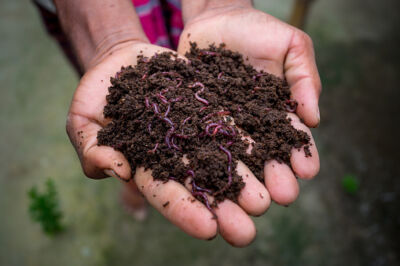The younger generation is more and more intrigued about agriculture nowadays. Among these people, we have Ashley Ruttanah. He is a fresh graduate in marine biology who likes to innovate. The Junior Chamber International held a challenge, the Sustainable Waste Management Challenge. Where the youngster showcased his project which was on vermicomposting. Vermicomposting is a process where we use worms to convert organic materials into the nutrient-rich matter. Its main advantage; it is an ideal soil type for harvesting food crops. His project was highly commended.
The JCI Sustainable Waste Management Challenge is a competition that focuses on building an ecosystem. This enables ideas on the sustainable management of waste. It takes place through webinars and training sessions. Consequently, these sessions are on diverse topics on the subject as well as different pitching rounds to select the winners of the project. The top 3 winners were recognized during an award ceremony held on Friday 18 June 2021 at the premises of Quality Beverages Limited at Belle Rose.
Ashley Ruttanah was the second runner-up with his project on vermicomposting.

Why vermicomposting?
Vermicompost is the product of earthworm digestion and aerobic decomposition using the activities of micro-and macro-organisms at room temperature. Vermicomposting, or worm composting, produces a rich organic soil amendment containing a diversity of plant nutrients and beneficial microorganisms.
Vermicomposting can also be a fun activity for school children. You can also use vermicomposting in gardens in order to promote plant growth. Vermicompost can be mixed with potting media at a rate of 10% by volume. You can also add it directly into your soil. Both of these options will equally provide plants with valuable organic matter, nutrients, and a diversity of beneficial microbes.
Benefits for vermicomposting:
1. Enhances plant growth and suppresses disease in plants.
2. Also increases porosity and microbial activity in the soil.
3. Improves water retention and aeration.
4. Benefits the environment by reducing the need for chemical fertilizers.
5. Diverts organic residuals from the landfill and reduces trash collection fees.
6. Finally creates resources from waste materials.
Source: http://mcbradio.tv
https://mbcradio.tv/article/le-vermi-compostage-pour-une-terre-plus-fertile
Accessed on July


